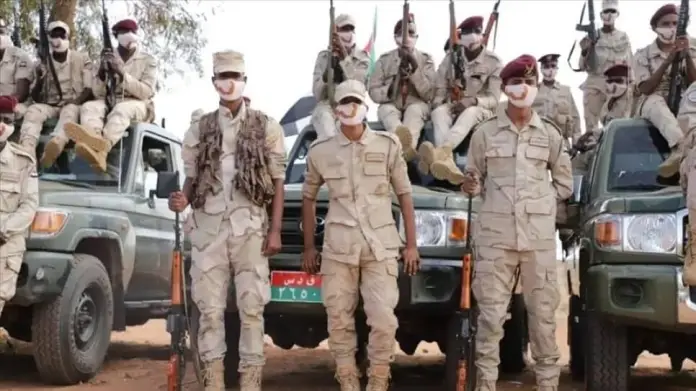At least 30 people were killed on Wednesday by Rapid Support Forces (RSF) in the city of An-Nuhud, West Kordofan State, according to the Dar Hamar Emergency Room. Among the victims were 27 hostages executed in the field after their families failed to pay ransom money demanded by the RSF, as well as three civilians killed at the Umm al-Badri market.
The detainees were reportedly held in areas known as Janayin Abu Khretesh and near the ice factory in central An-Nuhud, where they were executed after extortion demands were unmet. The Emergency Room described the incident as “a mass killing that reflects an ongoing pattern of intimidation and abuse against civilians in West Kordofan.”
In a separate incident, three more civilians were shot dead at Umm al-Badri market, roughly 35 kilometers east of An-Nuhud. Eyewitnesses said RSF troops opened fire after the victims—who were unarmed and on their way to the market—refused to stop for a military vehicle stationed by the roadside.
These acts occur amid rapidly deteriorating security throughout Kordofan and Darfur, following RSF withdrawals from Khartoum and several strategic states including Gezira, Sennar, and White Nile, forcing a redeployment of RSF forces to western Sudan.
The Dar Hamar Emergency Room confirmed that the latest extrajudicial executions targeted dozens of detainees held inside An-Nuhud, turning locations like Janayin Abu Khretesh and the ice factory into informal detention centers where severe abuses are being committed. The violations extend beyond field killings; the group reported that citizen Abdul Rahman Hamdan died after being brutally tortured following his kidnapping from his home in the Abu Sunoon neighborhood. His body, bearing clear signs of torture, was later found, and the attackers—believed to be RSF—reportedly stole gold jewelry belonging to his wife.
Compounding the violence, An-Nuhud and neighboring villages are experiencing a severe health crisis as a cholera outbreak has led to dozens more deaths in recent days. Residents face acute shortages of medicine and almost total collapse of health care, with little to no government or humanitarian presence.
In North Darfur, the Sudan Doctors Network issued an urgent appeal to local authorities and international organizations, warning of an imminent humanitarian catastrophe in the besieged city of El-Fasher. Food insecurity there has reached emergency levels under international standards, putting thousands of children and women at risk of starvation. Families across El-Fasher face severe shortages of food, medicine, and drinking water, with aid deliveries blocked and the city cut off for more than a year.
The organization called for immediate international intervention to open humanitarian corridors and provide essential supplies to the city’s trapped residents.


